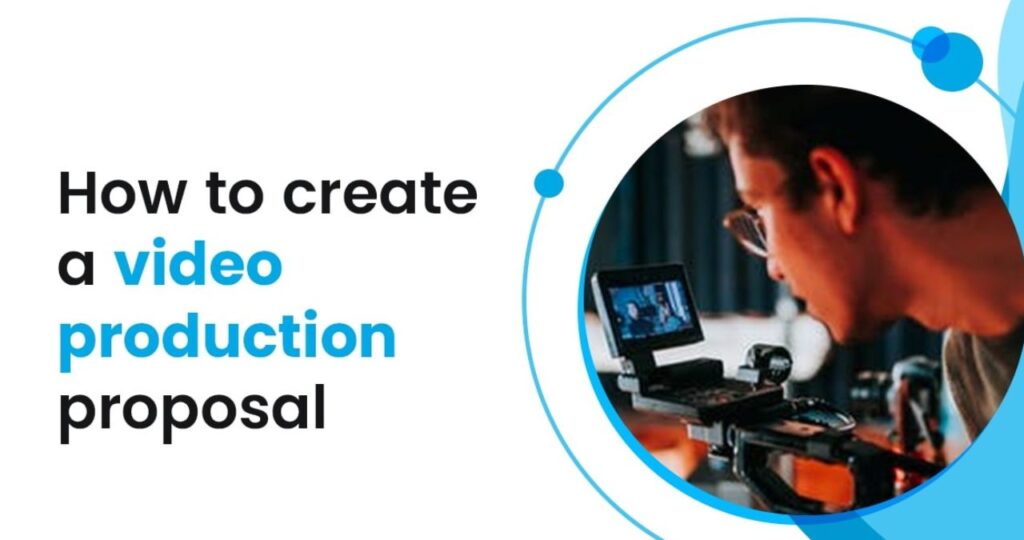How to bid on construction jobs
AUG 28, 2024 | LAST UPDATED ON SEPT 20, 2024 BY ANGELICA NAIDU

To succeed in construction, you must get good at bidding and winning projects. If you bid too low to get jobs, you’ll end up paying expenses from your pocket. But if you bid too high, you might miss out on opportunities.
It’s all about balance. Knowing what each project needs, what it costs, and what your USPs are. Look at the bids you’ve won and lost, stay up to date with industry news, and train your team to bid better. Building relationships with clients, suppliers, and industry groups will give you more opportunities in the future.
Let’s discuss the details of bidding on construction jobs, offering valuable insights and practical tips to help you craft competitive bids that stand out.
Table of Contents
ToggleWhat is a construction bid?
A construction bid is a proposal you submit to the client outlining the project’s cost, time, and scope. General contractor or sub-contractors or even construction firms can submit the bid to the project owner, outlining the project’s costs, timelines, and scope.
The bidding process allows clients to choose the right contractor for their needs and budget. It promotes competition and can reduce project costs.
Construction bids should present your capabilities, experience, and your commitment to delivering quality work at a cost within a specified time frame. If your bid meets the client’s expectations, then upon acceptance, it will become a legally binding contract.
6 steps in the construction bidding process
The common steps of bidding during construction include:
- Receiving Bid Invitation or Finding Project Opportunity: Sometimes, you can initiate the formal process by receiving an invitation to bid. Usually, these bids are extended to pre-qualified contractors, or you can seek projects that meet your criteria on online websites, such as Plan Hub or BuildingConnect, one-on-one networking, or public notices.
- Analyzing Project Documents: Once you’ve an idea of the possible project, go through all the related documents. Check out everything – from blueprints to specs to other must-haves. You need to get a solid grasp of what the project involves and its complexities.
- Estimating Costs and Preparing the Bid: At this stage, you’ll break down all the project costs, including workers, equipment you need, and fees for subcontractors. You then use these cost figures to put together your thorough, spot-on, and by-the-book bid to show the client.
- Submitting the Bid by the Deadline: Ensure the bid is submitted on time and in the right format.
- Bid Opening and Evaluation by the Client: After the submission deadline passes, the client opens all received bids and evaluates them based on pre-determined criteria, which might include cost, experience, and proposed methodology.
- Contract Award and Negotiation: If your bid is selected, engage in contract negotiations with the client to finalize terms before starting the project.
How to bid on a construction project
Bidding construction jobs as contractors or subcontractors involves a process that requires careful planning and execution. Here are the steps you need to follow:
Finding Construction Bid Opportunities
The first step is to identify potential projects corresponding to your expertise and available resources. There are several paths toward promising opportunities:
- Bid Solicitation: When seeking bids, property owners or their representatives send out an Invitation for Bid (IFB), a Request for Quote (RFQ), or a Request for Proposal (RFP). Public projects require agencies to extend an invitation to eligible contractors registered to work on government construction jobs. Private projects might have open bids or send them to a select group of contractors in a non-competitive process.
- Prequalification: Sometimes, project owners might screen contractors beforehand by checking their qualifications, past work, and available resources. This step helps make sure all potential contractors can handle the job.
- Networking and Connecting with Clients: To increase your chances of winning bids, it’s important to network with General Contractors (GCs) to gain access to upcoming projects. Consider joining construction bidding platforms such as PlanHub, Builder Exchange Forum, or BuildingConnected to find relevant bids easily. Establishing relationships with architects who can recommend you to project owners for bidding opportunities can enhance your visibility.
- Searching for Projects: The government and all public sectors involved issue tenders from time to time before submitting bids for construction projects.
Preparing to Bid
So now that you have your list of potential projects, it is time to dig deeper and be prepared for a competitive bid:
- Researching the Project Thoroughly: It will involve reading all the documents, such as the architectural and engineering plans, to gain a comprehensive understanding of the scope of work. Familiarize yourself with any local code or law that may apply in the area. Moreover, review previous projects to familiarize yourself with the client’s special expectations or tendencies.
- Analyzing Project Requirements and Specifications: Determine the material, equipment, and labor requirements, including any risks or constraints that may impact the time and resources required.
- Conducting Site Visits (When Possible): Head to where the project will happen to see things for yourself. Double-check measurements, spot any possible snags, and jot down what you see with photos and notes. This firsthand information can help you create an accurate and competitive bid.
- Assessing Your Company’s Capabilities and Resources: This means assessing staff skills and time, inventory of equipment, and money as the major consideration. Avoid taking on projects that do not match your skills and resources.
Estimating Costs
Accurate cost estimation is the foundation of a successful bid. Here’s how to break down the various cost components:
- Breaking Down Labor Costs: Estimate the number of man-hours for each task, including wage/benefit, overtime, and time lost. Factor in the cost of supervision and management within your estimates.
- Calculating Material Costs: Make a master list of all inventory, prices from various suppliers, costs of distribution, and odds of price changes. To avoid compromising on costs, provide an additional percent to cover expenses for waste and possible overreaching.
- Factoring in Equipment and Subcontractor Costs: Decide what kind of equipment you already own and will rent. Also, the operating expenses involved in fuel and maintenance must be decided. Ask for quotes from the subcontractors and then add a markup to their prices to accommodate your overheads and administrative fees.
- Including Overhead and Profit Margins: Combine direct job costs with overheads such as rent, insurance, and office taxes. Given the project’s difficulty level, potential risks, and other relevant market conditions, calculate a reasonable profit margin for the project. Another thing to consider is the contingency for unpredictable additional expenses.
Crafting a Competitive Bid
A winning bid strikes a balance between competitiveness and profitability. Here’s how to make your bid stand out:
- Balancing Competitiveness with Profitability: Analyze competitors’ strengths and weaknesses and estimate their future behavior by studying previous bids for similar projects. Compare costs and find out where you can cut down expenses. Consider the feasibility of conducting value engineering to eliminate costs that may add to overall costs while still delivering quality. Set your price floor for the project to make it possible for you to undertake it.
- Highlighting Your Company’s Unique Selling Points: Focus on your relevant experience as a contractor, showcase your past successful projects, and highlight any specialized skills or techniques your company has. Emphasize your safety record, quality assurance processes, and good financial stability.
- Addressing the Client’s Specific Needs and Concerns: Tailor your bids to the client’s needs, whether time, quality, or cost-effectiveness. Present possible solutions to these expected challenges and present options or alternatives that add value to the project.
Our proposal management software, Super Proposal, can facilitate crafting proposals that balance price and value. Super Proposal comes integrated with over 100 templates that can be customized to suit your client’s needs, making your bids look professional. It makes it easier for you to highlight the key aspects of your offer, including experience and approaches that nobody else has presented to the client.
Bid Submission and Follow-up
The final stages of the bidding process are equally important. Pay close attention to these steps:
- Ensure All Required Documents are Included: Verify that all relevant bid documents are included in your submission, such as the bid form, cost estimates, project timeline, and other paperwork that should be submitted as required by the bid announcement.
- Double-check Calculations and Details: Double-check all calculations and units and confirm that your bid is comprehensive and meets all the requirements. Having another team member review the bid is always helpful, so this extra layer highly contributes to a good review.
- Submit bids to Contractors: When the bid day approaches, the subcontractors send their bids to the main contractor. The contractor will review these bids, compare them with similar projects, and may also ask the subcontractor for further details or for a revision in pricing.
- Submit bid bonds: If required, you can submit a bid bond with your bid to be considered for the project. The bid bond is a guarantee to the project owner that you will fulfill your obligations as stated in the bid. This bond protects the owner from loss if you don’t complete the agreed-upon project.
- Follow up with the Client After Submission: Write a thank-you note to express your appreciation for the opportunity to bid. In any case, ask about the decision time frame and seek their opinion on your bid.
Read more: Emails for Proposal Submissions
Read more: Sample Follow-up Email to Client After Sending a Proposal
Bid Selection
Generally, property owners select the most competitive price from multiple bids. Bids for public projects are usually awarded to a lower bidder. However a subcontractor’s experience and relationship with the contractor increase the chances of selection.
Common Mistakes to Avoid while bidding on construction jobs
Here are some common mistakes you should avoid by bidding for construction jobs:
Underbidding to win the job
Understanding this is crucial as it is easy to be tempted to underbid to clinch a particular project. There is always a risk of losing money in its implementation, the quality of work is affected, and one’s reputation suffers. Recall that drawing new clients whose main concern is the price of services can have negative consequences for the development of close cooperation.
Overlooking hidden costs
It is necessary to include all project-related costs, such as permits, inspections, temporary facilities, cleanup, and disposal expenses. Also, ensure that there is a provision for upward fee adjustments in long-drawn-out projects to preserve the business’s profitability.
Failing to read and understand all project documents
Before starting a project, carefully read through specifications, addenda, and contract terms or conditions. Lack of attention to detail or wrong understanding of certain legal contract provisions may result in significant financial losses, disputes, and work delays.
Not asking questions when clarification is needed
It is always important to clear any uncertainty with the client that may arise from various project considerations. Assuming things may lead to bidding that lacks the true value and wrong perceptions in the next steps. Honesty helps avoid misunderstandings and ensures that each team member is aware of goals, tasks, and strategies.
How can Super Proposal help close more construction bids
Super Proposal is vastly more than a tool – it is an all-encompassing solution for construction bid management. Instead of having numerous different proposals created across numerous platforms and systems, we bring all the creation, editing, and closing processes onto one platform. Get rid of switching between applications such as Excel, Word, and electronic signature tools.
Super Proposal also comes with powerful tracking features that enable you to monitor the status of your sales leads. Packed with features, our analytics give you crucial proposal performance information to help improve your bidding strategy.
Benefits of using digital tools in the bidding process
Embracing digital tools like Super Proposal yields numerous advantages, including:
- Improved Accuracy and Consistency in Estimates: Avoid making mistakes when calculating prices across all your bids.
- Better Data Management and Analysis: Gather project data in one place and gain insights that will help you make better bidding decisions in the future.
- Enhanced Collaboration Among Team Members: Make it easy to work together, ensuring that the flow of information is efficient and the work process is well-coordinated. Super Proposal centralizes all your project discussions and document edits, streamlining the workflow in one single platform. This efficient collaboration not only boosts productivity but also accelerates your proposal process, helping you close deals faster.
Building Relationships for Better Bidding
Maintaining good relationships with important clients can open doors to future business, and better conditions are often given.
Networking with suppliers and subcontractors
It will help you establish connections and communicate with other industry professionals during trade fairs. Building close and long-term partnerships with suppliers and subcontractors results in better prices, services, and first access to new products and technologies.
Maintaining good relationships with past clients
Every client is a valued customer, which means that prompt service delivery is not limited to after the completion of a project. Continue the relationship with former clients by sending them newsletters, occasional emails, or calls. Their satisfaction can turn into word-of-mouth recommendations and customers’ positive reviews and re-bookings, which boosts your brand image and trust.
Joining industry associations
Find any relevant industry associations that you could join. This exposes you to excellent training and education, networking with colleagues and leads, and the latest trends and conditions of the industry.
Continuous Improvement in Bidding
To stay ahead in the competitive construction landscape, prioritize improving your bidding strategies continuously.
Analyzing won and lost bids
Start analyzing both the won and lost bids. Where possible, compare your bids with those that were successful and look for patterns and strategies that worked. Make time to get feedback from your clients about your proposals, which will help them understand them better.
Keeping up with industry trends and new technologies
Investing in team training and development
Your team’s biggest asset is its expertise. Give them regular training on estimating techniques, proficiency with software, and state-of-the-art techniques in the industry. Professional certifications like the Certified Professional Estimator (CPE) designation will enrich your team’s credentials and commitment to quality. Cultivate continuous learning and excellence within your organization.
Conclusion
Successful bidding on construction jobs, either as a contractor or a subcontractor, demands a strategic approach incorporating continual improvement, relationship building, and dynamic use of technology.
In addition, using digital tools like Super Proposal will make it even easier to prepare and handle proposals, making it easier to prepare competitive bids. Super Proposal is designed to enhance accuracy, effective collaboration, and information management, which will adequately increase conversion rates.
Experience the power of Super Proposal by taking the first step and trying out the free trial. Do not miss this opportunity to power your tactic and win more jobs. Try Super Proposal today!
Increase your close rates today!
Secure every pitch that you make with Super Proposal. Craft winning proposals, share and track them on a single, comprehensive platform.
✓ 15-Day Trial. No Credit Card Required.

Recent Post



